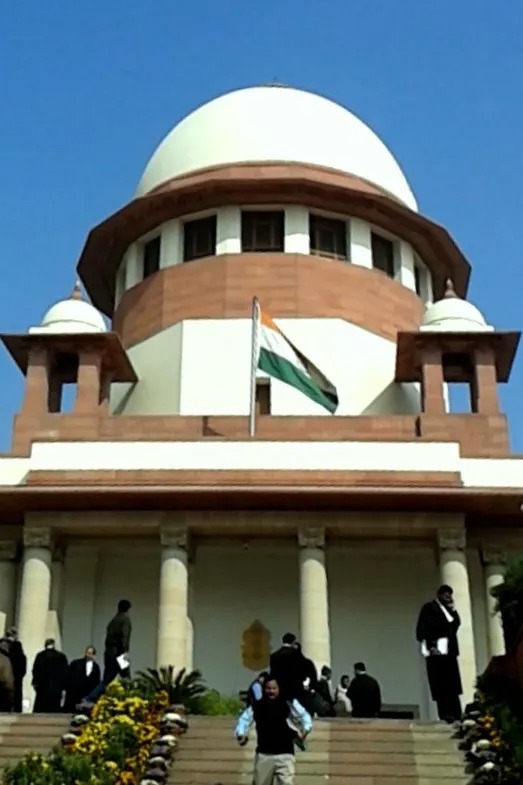@JUDGMENTTAG-ORDER
G. Bikshapathy, J.@mdashThis revision petition is filed against the orders dated 26-3-1999 made in O.S. No. 400 of 1996 on the file of learned Senior Civil Judge, Piler, refusing to admit the document dated 16-4-1979 said to be filed by the petitioner-11th defendant. The said document was dated 16-4-1979. The suit was filed for partition of the suit schedule properties and for separate possession. During the course of the evidence of petitioner-11th defendant, he tried to introduce the document dated 16-4-1979 to the effect that the partition of the properties were already effected in the year 1976 and the document was drawn up only on 16-4-1979 for acknowledgment of such a partition. But an objection was raised by the plaintiffs-respondent Nos. 1 to 3 on the ground that the said document cannot be taken into evidence as it is compulsorily registrable document u/s 17(1)(b) of the Indian Registration Act, and, therefore, the document has to be rejected. The lower Court considered the matter and agreed with the contention of the plaintiffs and held that the document has created fresh rights between the parties and therefore, it is compulsorily registrable document. Against the said decision, the present revision petition has been filed.
2. Learned Counsel appearing for the petitioner submits that the lower Court did not consider the contents of the document in a proper perspective. u/s 17(1)(b) of the Registration Act, the document has to be compulsorily registrable, if the right, title and interest in the immovable property exceeding the value of Rs. 100-00 is effected. In the instant case, there was no transfer of any immovable property nor any right is created by virtue of the document dated 16-4-1979. It is only reiteration of past partition and it should be treated as an acknowledgment of earlier partition, which took place in the year 1976. Learned Counsel for the petitioner also submits that in the document, it is clearly mentioned that "we were all joint family members. In the year 1976 we got divided and all the movable and immovable properties are partitioned and since then all the parties are enjoying their respective shares. But now we have decided that it should be reduced into writing and accordingly this partition deed is written." Taking advantage of this situation, learned Counsel for the petitioner submits that it clearly indicates that partition had already taken place in the year 1976 and respective parties have been enjoying the properties as allotted to them in the year 1976 and under such circumstances it cannot be said that the rights were accrued to the parties for the first time under this document and, therefore, the finding of the lower Court that the document dated 16-4-1979 created a right and it is a partition deed is wholly erroneous and contrary to law.
3. On the other hand, learned Counsel for the respondents submits that this document has to be treated as a partition deed as it is reduced into writing allocating the shares of the joint family properties.
4. I have heard the learned Counsel for the parties and also perused the order under revision.
5. I am afraid I cannot accept the conclusions reached by the lower Court. The lower Court has not properly conceived the purport of Section 17(1)(b) of the Registration Act. When a document purports or operates to create right, title or interest in respect of immovable property, the value of which exceeds more than Rs. 100-00, the document has to be compulsorily registrable and non registration of such a document cannot be received in evidence u/s 17 of the Registration Act. But in the instant case, the document did not create any right, title or interest for the first time. The recital itself indicates that the partition took place in respect of joint family properties in the year 1976 and ever since such partition, the parties are enjoying the respective shares. In such a situation, it would not be appropriate to the lower Court to observe that there was no documentary proof that oral partition was acted upon prior to the agreement. It is not the case of the parties that the agreement was not acted upon. The sentence itself clearly indicates that all the parties have been enjoying the property divided as early as in 1976 and it is only for the purpose of reiteration of past partition, it was put in writing in document in regard to the partition made in the year 1976. In such a situation, it cannot be held that the document is created for the first time on 16-4-1979. It is clearly held by catena of decisions that if a document purports to create, right, title or interest for the first time for the value more than Rs. 100-00, it has to be registered. But when the document only acknowledges the past partition, it is not necessarily to be registered u/s 17(1)(b) of the Registration Act. Under these circumstances, the order of the Court below is wholly erroneous and contrary to law.
6. Accordingly I set aside the finding of the Court below and direct the lower Court to receive the document dated 16-4-1979 for the purpose of collateral evidence and proceed with the matter in accordance with law.
7. Accordingly, the revision petition is allowed. No costs.

